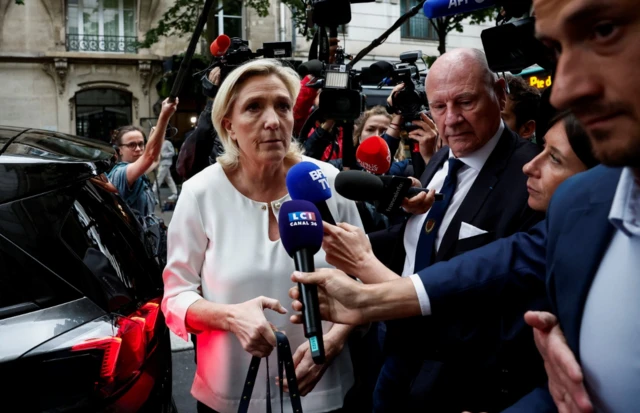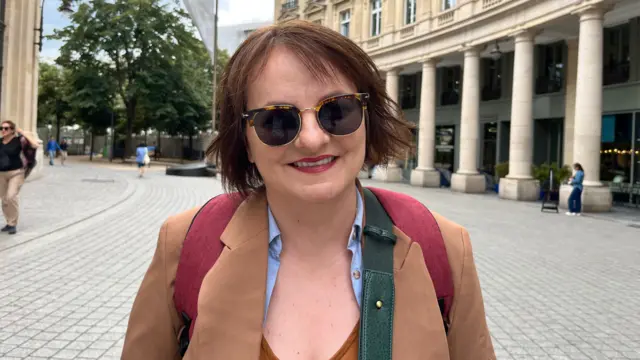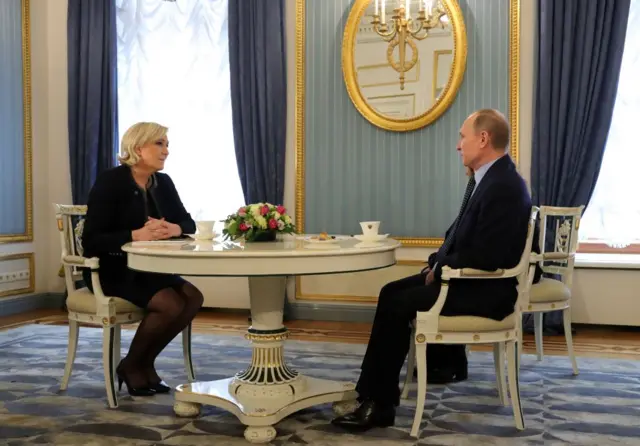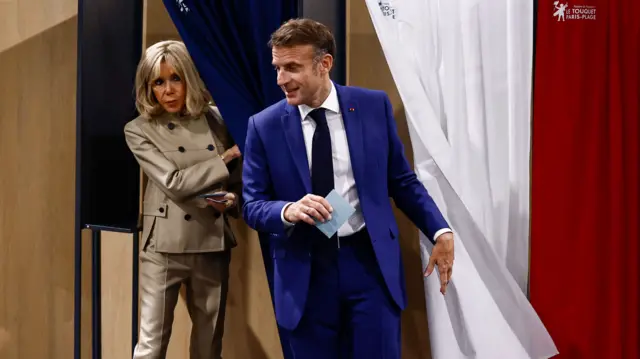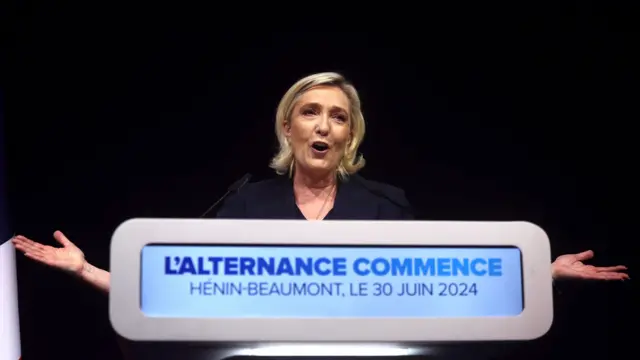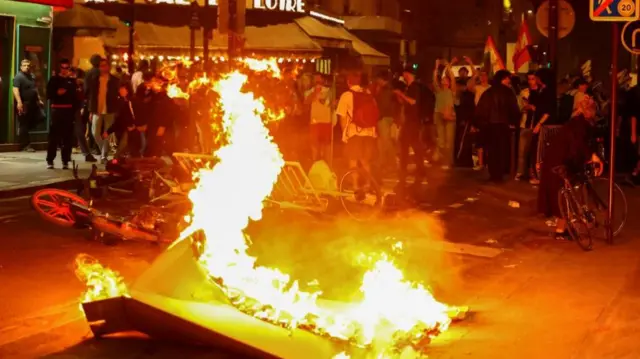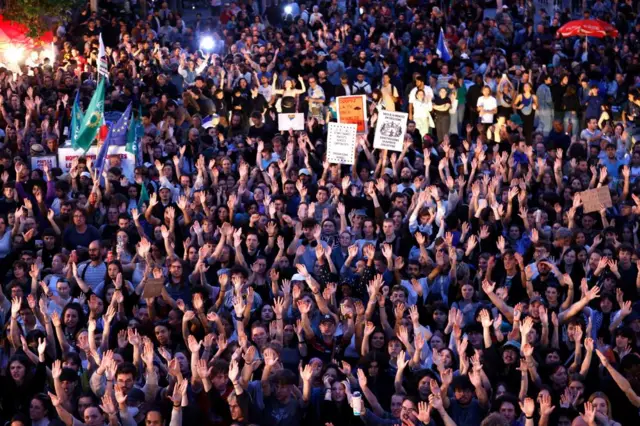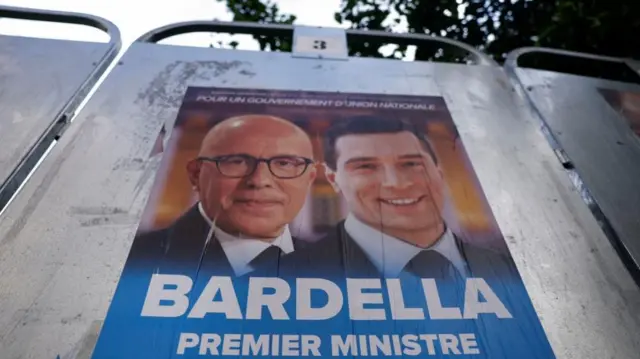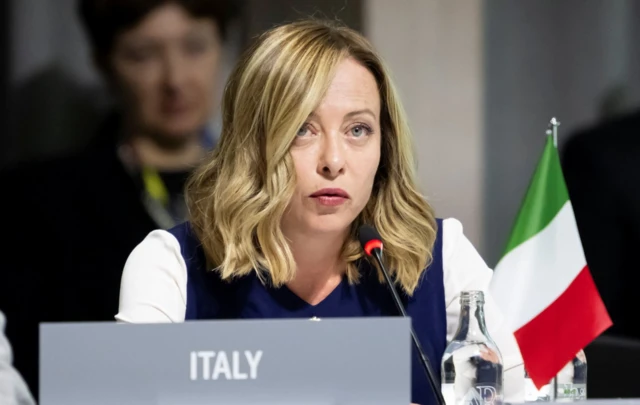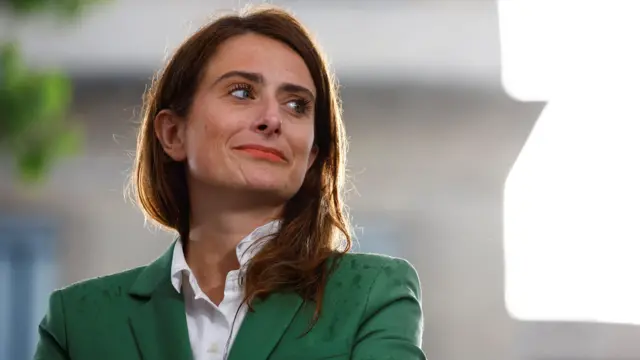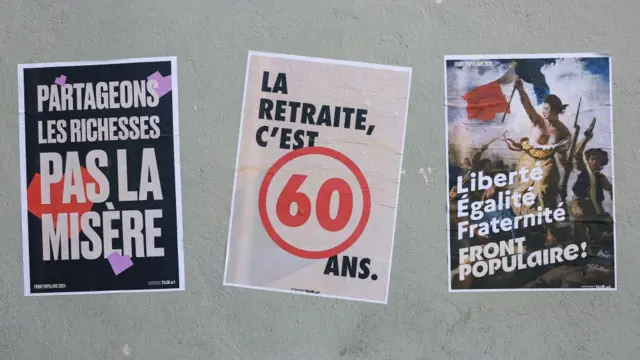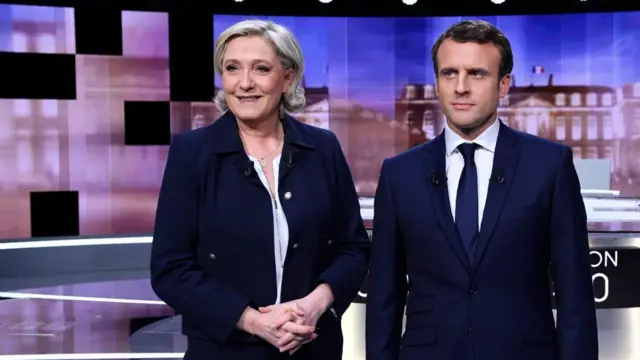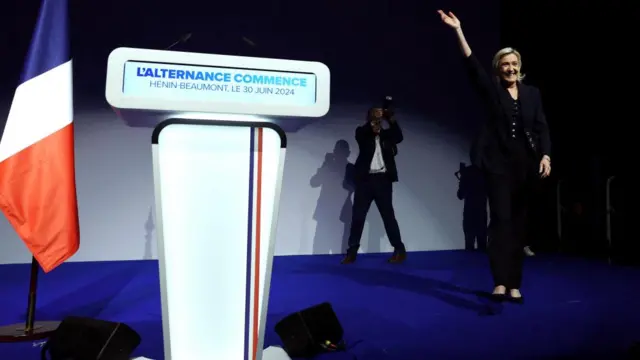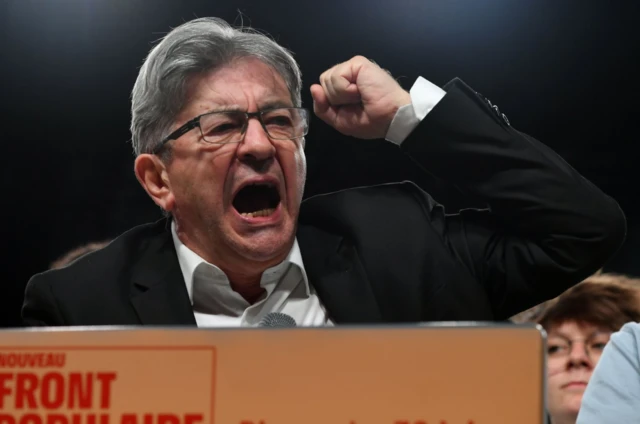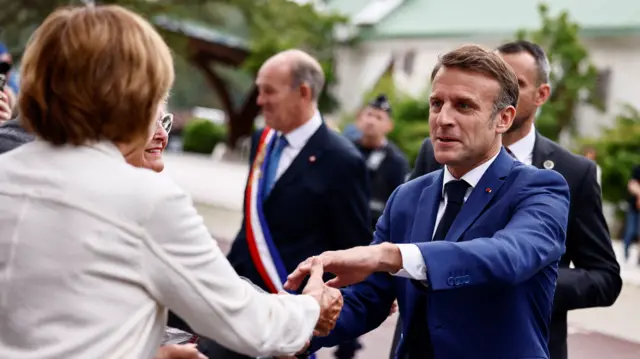
Yesterday's victory doesn't mean RN will form next governmentpublished at 18:06 BST 1 July 2024
 Hugh Schofield
Hugh Schofield
Paris correspondent
The National Rally is now established as France’s dominant political force. But that doesn’t necessarily mean it will be able to form the next government.
As campaigning gets underway for Sunday’s second round, moves are afoot to try to thwart the far-right’s ambitions.
The two other big political blocs – the left-wing alliance called the New Popular Front and President Macron’s centrists – have the possibility, if their voters come together, of forming a blocking majority against the National Rally in many constituencies.
In some, where there’s a three-way fight next Sunday, one or other of the two non-RN candidates could step down in order to concentrate the vote against the far-right.
This so-called “Republican Front” has worked in the past – but its impact is not what it was.
And the RN’s Jordan Bardella says he’s still confident the party will win enough seats to have an overall majority in the new Assembly.
The programme of national recovery RN has been hoping to put in place if gets an overall majority has been watered down of late, with the aim of reassuring voters from the right and centre.
But it still includes costly measures such as cutting value added tax (VAT) on fuel and electricity, and a promise to reduce the age of retirement.
On immigration, the party wants to prioritise some social benefits for people with French nationality.
The markets clearly think now that the party won’t get an outright majority in the new Assembly, and they’ve rallied as a result – though the likely alternative, a hung parliament with no party able to find a majority, is not exactly a recipe for stability.
